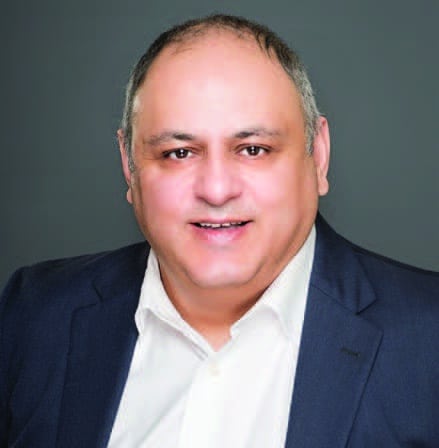As a dental practice owner, you’ve likely invested significant time, money, and energy into building your business. You may also be looking ahead to retirement and wondering about your options for securing your financial future.
Before you start researching plans, there are some considerations you need to make. Retirement planning can be a little tricky, especially with the constantly changing market and employee expectations, so before choosing a plan, take an honest inventory of your practice. Think about your personal retirement goals, your practice size, current financial situation, employee mix and retention, practice growth expectations, and marital status. All of these factors will play a significant role in determining the type of solutions you evaluate and the final decisions you make.
Fortunately, there are several retirement planning options available to you. In this blog post, we’ll look at some of the most popular options and how they can help you reach your retirement goals.
Individual Retirement Accounts (IRAs)
Individual Retirement Accounts, or IRAs, are a popular retirement planning option for individuals who are self-employed or who don’t have access to an employer-sponsored retirement plan. There are two types of IRAs: traditional and Roth.
A traditional IRA allows you to make tax-deductible contributions and defer taxes on your investment earnings until you withdraw them in retirement. With a Roth IRA, you make after-tax contributions, but your investment earnings grow tax-free, and retirement withdrawals are tax-free.
As a dental practice owner, you can contribute up to $6,000 per year to an IRA, with an additional $1,000 catch-up contribution if you’re over age 50. However, remember that contribution limits are subject to income limits, so it’s important to consult with a financial advisor to determine your eligibility and contribution limits.
Simplified Employee Pension (SEP) Plans
A Simplified Employee Pension (SEP) plan is a retirement plan specifically designed for self-employed individuals and small business owners. With a SEP plan, you can contribute up to 25% of your net self-employment income (up to $66,000 for 2023) to a tax-deferred account.
Contributions made to a SEP plan are tax-deductible and flexible, which means employers can choose to contribute a percentage of employee compensation (up to a certain limit). It’s also easy to set up and administer, requiring minimal paperwork. You can even open a SEP plan after the end of the tax year and still make contributions for that year.
On the other hand, there are some limitations: unlike some other retirement plans, employees cannot make contributions to a SEP plan, and the maximum amount that can be contributed each year is lower than some other retirement plans, such as a 401(k).
Solo 401(k) Plans
A Solo 401(k) plan is another retirement planning option for self-employed individuals and small businesses. With a Solo 401(k) plan, you can contribute up to $58,000 per year (or $64,500 if you’re over age 50) to a tax-deferred account.
One of the advantages of this type of plan is that you can make contributions both as an employee and an employer. This means you can provide higher contribution limits than a SEP plan. You can contribute up to $19,500 (or $26,000 if you’re over age 50) as an employee and up to 25% of your net self-employment income as an employer.
But it may come with additional administrative tasks and complexities, which require professional help to set up and maintain. There are annual compliance testing and recordkeeping requirements you must pay attention to.
Safe Harbor 401(k) Plans
A Safe Harbor 401(k) plan is an employer-sponsored retirement plan designed to be exempt from certain annual nondiscrimination testing requirements that traditional 401(k) plans are subject to. This is achieved by meeting some contribution and notice requirements that give employees benefits, such as mandatory employer contributions or immediate vesting of employer contributions.
It can be an excellent option for dental practices looking to maximize retirement savings for highly compensated employees while simplifying the administration of the plan and attracting and retaining talented staff.
Defined Benefit Plans
A Defined Benefit Plan is a type of plan that provides a fixed, pre-determined benefit in retirement. The employer promises to pay a specific benefit amount to employees upon retirement based on a formula that typically considers factors such as years of service and salary.
These plans are typically used by larger companies, but small businesses can also use them. It may be attractive to practice owners who want to maximize their retirement savings, as it generally allows for higher contributions than other retirement plans. In fact, you can contribute up to $230,000 per year (or more, depending on your age and income) to a tax-deferred account.
One of the drawbacks of this type of plan is that it’s more complex and requires actuarial calculations from a professional to ensure compliance with regulatory standards. Due to the complexity involved, it can be more expensive to set up and administer than other types of retirement plans.
To sum up, as a dental practice owner, you’ll have multiple retirement plans to choose from, including traditional 401(k)s, SIMPLE IRAs, Safe Harbor 401(k)s, SEP-IRAs and Solo 401(k)s. If you have employees in your practice, conventional wisdom suggests considering options like the SIMPLE IRA, 401(k), and SEP-IRA. If you don’t have employees or your practice includes just you and your spouse, you should look into the SEP-IRA or a self-employed 401(k) plan.
If you’re close to retirement, you may want to think about a Defined Benefit Plan (DBP). These plans can offer higher levels of potential savings, despite increased administrative and employee costs and can be a good choice for an older dentist looking to catch up on retirement savings.
Before you make any choices, be sure to get solid advice from a tax professional who can evaluate your individual practice needs and retirement goals and make recommendations from there. If you don’t know how to start, you can always ask for help. Do you want to know which of these options is a fit for your practice? Reach out to our professionals and set up your consultation here.




